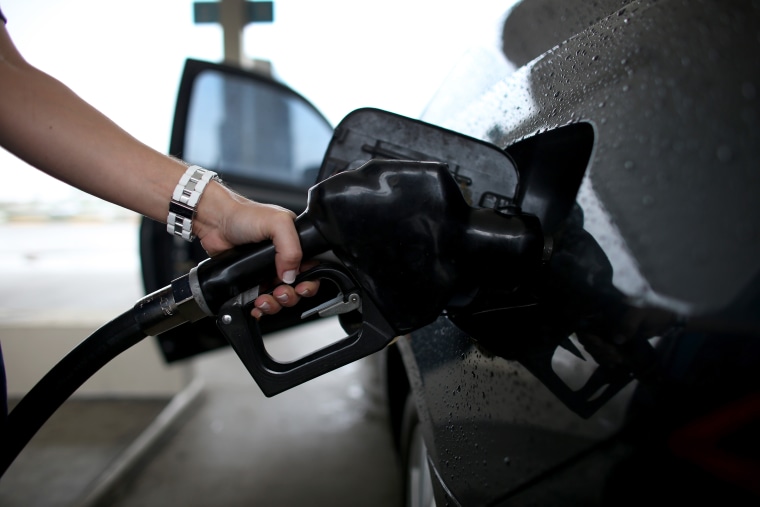Gas prices have steadily increased throughout Donald Trump's presidency, which hasn't been surprising. As the economy has continued to steadily grow, the trajectory of what consumers pay at the pump has followed a predictable course.
But just over the last couple of months, prices have fallen sharply. In fact, since November, we've seen the sharpest drop in gas prices in about three years.
Naturally, the president wants credit. On New Year's Day, Trump tweeted, "Do you think it's just luck that gas prices are so low, and falling?" At a cabinet meeting yesterday, the president went into more detail.
"People see that gasoline is way down. And the reason it's way down is because I called up some of the OPEC people. I say, 'Don't do it.' You know, if you look back a few months, gasoline was at $83 a barrel. That was going to be bad. And it was going to $100, and some people were saying $125, [Energy Secretary Rick Perry]."And I make calls. I said, 'You better let that oil and that gasoline flow.' And they did. And now it's down to $44. And I put out a social media statement yesterday; I said, 'Do you think it's luck that that happens?' It's not luck. It's not luck."
Got it. Gas prices steadily increased for nearly two years, at which point Trump ... made some stern phone calls. Oil producers, awestruck by the American president's awesomeness and force of will, increased production and scrambled to make Donald Trump happy.
It's a nice fantasy for the White House, but it doesn't reflect reality in any meaningful way.
Vox recently published a good piece taking a closer look at the recent drop in gas prices.
As the Wall Street Journal's Sarah McFarlane and Pat Minczeski laid out on Tuesday, there are a number of factors at play. The global supply of oil is outpacing demand right now, oil inventories (basically, the amount of oil in storage) are on the rise, and the US is increasing how much oil it's pumping. There's also more Iranian oil in the market than expected, and Russia and Saudi Arabia have been ramping up production as well.Most of that has nothing to do with President Trump. Some of it does, but not exactly in a positive way.The main Trump-related factor is, perhaps surprisingly, Iran.
Quite right. As NBC News reported this week, the Trump administration has approved waivers that allowed Iran to export oil, at least temporarily. The result is a greater supply for the international market, which in turn has helped push prices lower.
Ashley Petersen, a senior oil market analyst at the energy advisory firm Stratas Advisors, told Vox, "You could say he helped lower oil prices, but he did it by being weaker than expected on a country he's labeled as an enemy of America and by potentially derailing economic growth through a trade war with China. Not exactly bragging points."
Petersen added, "There are so many variables that go into oil prices, almost none of which are under his control, that taking credit for a price drop will inevitably backfire when the price rises again."
And that's the takeaway that stood out for me. Trump loves tying his presidency to market changes he has very limited control over. He did it with the stock market, right up until Wall Street had its worst year since the Great Recession.
Now the president's doing it with gas prices. When they climb anew, won't everyone simply ask why Trump can't fix it with another round of stern phone calls?
